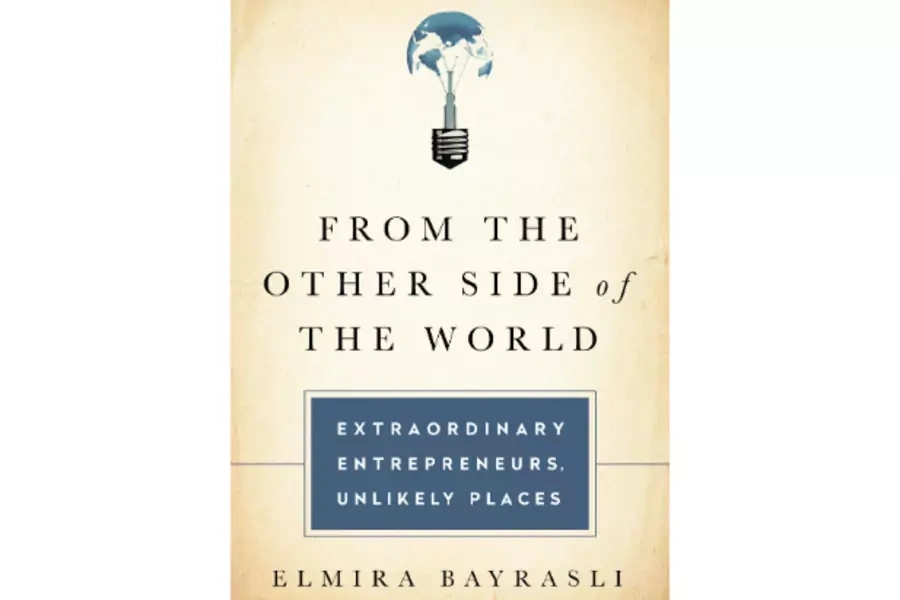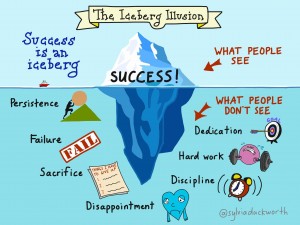Ten Whats With...Elmira Bayrasli

Elmira Bayrasli is co-founder of Foreign Policy Interrupted and author of the new book, From the Other Side of the World: Extraordinary Entrepreneurs, Unlikely Places (Public Affairs, 2015)
1. What is the most interesting project you are currently working on?
Foreign Policy Interrupted (FPI)! After a conversation with my co-founder, Lauren Bohn, about why, in the twenty-first century, we continued to pose the question, “where are the women?” we decided to take action. FPI is a media and education platform that provides media training for women and works with media outlets on identifying female voices. We’re two years into it and have learned a lot about gender inequality and foreign policy. There is a lot of work to do on both fronts. And it’s too important not to. Foreign policy, along with a multitude of other disciplines—technology, finance, law, science—in the twenty-first century requires diverse thoughts and voices. Enough with the old boy’s club.
2. What got you started in your career?
As the daughter of blue-collar Turkish immigrants and with a name like Elmira, I was always aware of the wider world beyond Brooklyn and New York City. The question “where are you really from?” prompted me to follow foreign affairs and become interested in a career in international relations at the earliest of ages. It was after a trip to Turkey, where I started to understand why that country was so poor, that I became interested in “saving the world.” In 1993, after graduating from New York University with a degree in political science, I joined the State Department for what has become a career working on global economic and development issues. It was after living and working in Bosnia-Herzegovina in the early 2000s that I started to become interested in entrepreneurship.
3. What person, book, or article has been most influential to your thinking?
Nancy Drew got me interested in reading but also made me aware about the need to explore and solve problems. Stephen Kinzer, the former New York Times bureau chief in Istanbul, taught me how to write. My FPI partner Lauren Bohn helped me open my heart. But it has been the people who have always discounted my abilities—who told me that I couldn’t be a writer or that I “didn’t have what it takes to be an entrepreneur”—that have driven me.
An individual’s narrative isn’t a moment in time or someone else’s opinion. It is a journey that only ends if you allow it to. I own my own narrative and refuse to yield it to anyone else.
4. What kind of advice would you give to young people in your field?
Focus on progress, not perfection. Don’t let failure defeat you. Work hard. And remember, success is an iceberg.

5. What was the last book you finished reading?
I’m currently in the middle of Elena Ferrante’s My Brilliant Friend. Before that, I finished The Museum of Innocence by Orhan Pamuk.
6. What is the most overlooked threat to U.S. national interests?
Inequality. Technology is advancing but public policy is not keeping up with it.
7. What do you believe is the most inflated threat to U.S. national interests?
Terrorism.
8. What is the most significant emerging global challenge?
Climate change. We’re using, making, building, driving, and flying, but we’re not paying attention to what it’s doing to the environment. Katrina and Sandy are not random events.
9. What would you research given two years and unlimited resources?
I’d love to dive further into where and how innovation happens. This topic is talked about a lot but not studied enough. Innovation isn’t a gadget. It is business models, paradigms, and mindsets.
Because I’m particularly interested in globalization, I’d love to see how globalization has affected nationalism, national identity, and individual identity. We’re seeing how globalization has led to the rise of some many places previously dismissed as “developing.” More people around the world have moved into the middle class and become entrepreneurs. It would be interesting to look at how that influences how people in Africa, Asia, Latin America, and the Middle East see themselves vis-à-vis the “developed” West and how they feel about their countries and themselves.
10. Why did you write From The Other Side of The World: Extraordinary Entrepreneurs, Unlikely Places?
When we talk about entrepreneurship in the United States, we always think of Steve Jobs, Bill Gates, and Michael Dell. When we talk about it in regard to the rest of the world, we think of women selling handcrafts—micro-entrepreneurs. I wrote this book to dispel that stereotype; to show that there are amazing men and women in Africa, Asia, Latin America, and the Middle East leading high-growth, globally competitive companies that are innovating; to show that entrepreneurship isn’t about a place, but opportunity. The men and women in my book are using entrepreneurship to solve the problems that have plagued them for so long and revolutionizing the systems that have denied them progress. Ultimately, progress is what entrepreneurship is about. That’s a lesson we have lost sight of in the United States as we’ve turned our attention to novelty tools and products that are cool but don’t advance society. This book aims to change mindsets about who an entrepreneur is and where they are.
 Online Store
Online Store